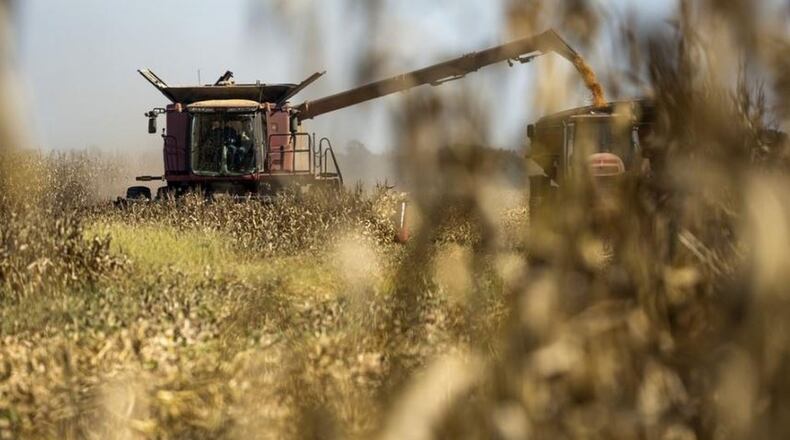U.S. agricultural exports to Mexico and Canada have grown fourfold since 1993, to more than $38 billion, according to figures from the U.S. Department of Agriculture. A full quarter of U.S. agricultural products are exported, USDA figures show, and Mexico and Canada are America’s two largest agricultural trade partners.
The two countries import more than $1.5 billion worth of food products, including grains, dairy, cattle, processed foods and tobacco products, from Ohio each year, the USDA says.
A disruption of that trade would come at a time when farm incomes have taken big hits in recent years as commodity prices have fallen. The Trump administration has talked tough on trade, including threatening to withdraw from NAFTA if its conditions are not met. A U.S. withdrawal would mean that agricultural products would be subject to tariffs, making those products less competitive in the marketplace.
“It would be devastating,” said Ian Sheldon, a professor of economics and trade policy at Ohio State University. “I agree the agreement needs to be modernized, but withdrawal would be very bad.”
Furthering the risk of backing out of the deal is that now, more than ever, agricultural products are global commodities. Mexico may turn to rising agricultural powerhouses in South America for corn and soybeans, and Canada could replace a large portion of its U.S. imports with European products, Sheldon said.
To understand the possible impact here, Mexico alone imported more than $251 million of corn and soybeans from Ohio last year, and it is the top importer of U.S. corn.
Not only does Mexico buy corn, but it also buys ethanol, a fuel made from distilled corn alcohol. And not only does Ohio produce a lot of ethanol, but a drop in the sales of ethanol, or production of it, would further cut the price of corn. And that sum already is currently a bit below the average cost of production, said Adam Sharp, executive vice president of the Ohio Farm Bureau.
Reducing Mexican and Canadian demand for U.S. agricultural products also would give China — already the largest market for U.S. soybeans — more leverage, even as the Trump administration grumbles about trade imbalances.
President Donald Trump has called NAFTA the worst trade deal ever. The negotiations are in the fifth round of talks currently, but there is only one additional meeting on the schedule, in mid-December. Trump also declined to sign the Trans Pacific Partnership, a multinational trade deal that would have covered trade between the U.S. and a host of Asian nations.
Sheldon and others, including representatives of the Ohio Farm Bureau and Ohio Soybean Association, acknowledge that NAFTA needs to include provisions for e-commerce, intellectual property, labor regulations, investment and other areas, but that the agricultural portion should mostly be left alone.
About the Author
